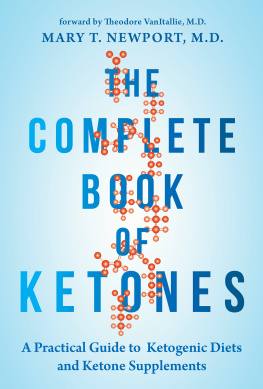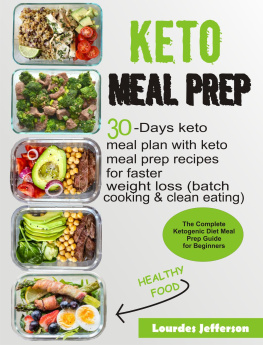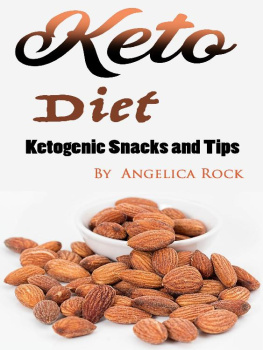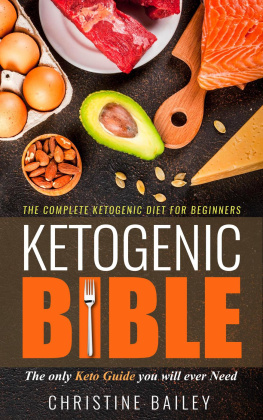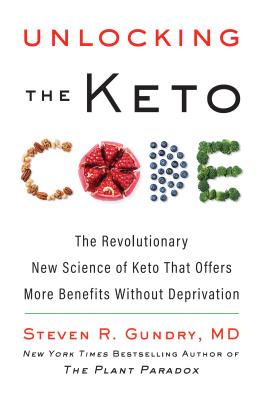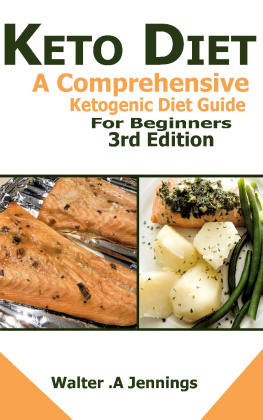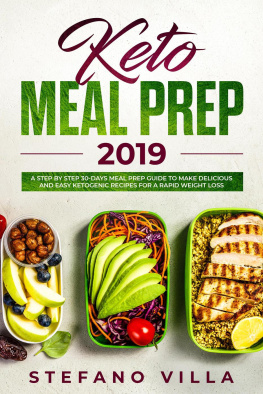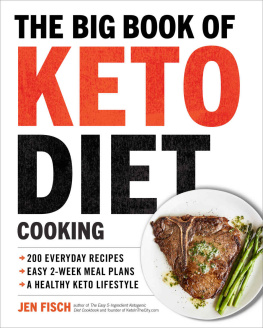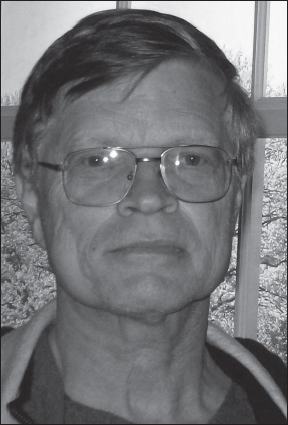
THE COMPLETE BOOK OF KETONES
A Practical Guide to Ketogenic Diets and Ketone Supplements
by MARY T. NEWPORT, M.D.
Foreword by Theodore VanItallie, M.D.
Graphics by Joanna Newport Rand
TURNER PUBLISHING COMPANY
Turner Publishing Company
Nashville, Tennessee
www.turnerpublishing.com
Copyright 2019 Mary Newport
The Complete Book of Ketones: A Practical Guide to Ketogenic Diets and Ketone Supplements
No part of this publication may be reproduced, stored in a retrieval system, or transmitted in any form or by any means, electronic, mechanical, photocopying, recording, scanning, or otherwise, except as permitted under Sections 107 or 108 of the 1976 United States Copyright Act, without either the prior written permission of the Publisher, or authorization through payment of the appropriate per-copy fee to the Copyright Clearance Center, 222 Rosewood Drive, Danvers, MA 01923, (978) 750-8400, fax (978) 750-4744. Requests to the Publisher for permission should be addressed to Turner Publishing Company, 4507 Charlotte Avenue, Suite 100, Nashville, Tennessee, (615) 255-2665, fax (615) 255-5081, E-mail: .
Limit of Liability/Disclaimer of Warranty: While the publisher and the author have used their best efforts in preparing this book, they make no representations or warranties with respect to the accuracy or completeness of the contents of this book and specifically disclaim any implied warranties of merchantability or fitness for a particular purpose. No warranty may be created or extended by sales representatives or written sales materials. The advice and strategies contained herein may not be suitable for your situation. You should consult with a professional where appropriate. Neither the publisher nor the author shall be liable for any loss of profit or any other commercial damages, including but not limited to special, incidental, consequential, or other damages.
Cover design: Maddie Cothren
Book design: Tim Holtz
Library of Congress Cataloging-in-Publication Data Upon Request
9781684421602 Paperback
9781684421619 Hardback
9781684421626 eBook
Printed in the United States of America
18 19 20 10 9 8 7 6 5 4 3 2 1
DEDICATION
This is dedicated to the memory of Steven Jerry Newport, my best friend and husband of forty-three years, who made it possible for me to be both a mother and a doctor. He said taking care of our girls was the best job he ever had. He was an active, intelligent, and creative person, helpful in every way to everyone, and one of the most pleasant people you could ever meet. He was well aware of the toll Alzheimers disease was taking on him and fully embraced the idea of ketones as an alternative fuel for the brain. He was a willing and eager participant in his reprieve from the disease, first by taking ketogenic medium-chain triglycerides and coconut oil, then a ketone ester in a pilot study of one patient. We were given at least three extra good years with Steve, thanks to ketogenic therapies.
Steve lost his battle with Alzheimers disease and Lewy body dementia on January 2, 2016. This book represents his legacy to the world.
Steven Jerry Newport1950 to 2016.
CONTENTS
by Theodore VanItallie, MD
FOREWORD
Dr. Mary T. Newport, author of this invaluable compilation of up-to-date information about ketogenic diets and supplements, could not have foreseen how seriously her life would be affected by her untimely confrontation with a wholly unexpected adversaryAlzheimers disease-induced dementia (ADd). In the space of a few months, her existence as a busy neonatologist and homemaker was transformed. And in the subsequent course of her courageous campaign against this implacable neurodegenerative disorder, she became a model of initiative and perseverance. These qualities were her strongest weapons in the fight to save her beloved husband, Steve, from rapidly evolving dementia. During this protracted battle, she found a treatment approachnot a curethat worked surprisingly well for Steve for almost four years.
Sadly, misfortune challenged her at a time when she should have been allowed to continue to enjoy her marriage to Steve unimpeded. It was his generosity of spirit that enabled her to attend medical school, while he was content to stay at home and care for their young children.
But fate intervened. In 2001, at age 51, Steve Newport, in the midst of a promising career as an accountant, developed early-onset dementia (which post-mortem studies disclosed was caused by a virulent combination of Alzheimers disease with a condition known as Lewy body dementia). Deterioration of his memory and cognitive skills progressed with alarming speed, and by 2006 he was unable to function in his job and had to give up driving. As his illness continued to progress, he became progressively more confused and disoriented and eventually was unable to carry out simple household chores or self-care without assistance.
The collective experience and professional knowledge of Marys Newports medical colleagues had no promising treatments to suggest. Steves situation soon reached a point where most spouses would have thrown up their hands and accepted palliative care as the only humane intervention possible.
But surrender is not in Mary Newports lexicon. By will alone, she forced herself to conduct a systematic search of the medical literature, hunting for any evidence of a treatment approach that might counter the process that was inexorably destroying brain functions that had made Steve such an admirable human being. As her mission progressed, Mary found her first glimmer of hope in the writings of Dr. Richard L. Veech, a Harvard Medical School graduate who went on to take graduate training in biochemistry at Britains University of Oxford. There Veech earned the doctor of philosophy degree (DPhil) for studies carried out under the tutelage of Sir Hans Krebs, discoverer of the famed Krebs cycle. After Oxford, Veech joined the intramural research staff at the National Institutes of Health and founded the Laboratory of Metabolic Control, which, at age eighty-two, he still heads.
Krebs had an interest in ketone body metabolism, which was transmitted to Veech. But the principal ketone bodies, D betahydroxybutyrate (D-OHB) and acetoacetate (AcAc) did not come into their own scientifically until 196667. Thats when a group of clinical scientists working under the leadership of Dr. George F. Cahill Jr. at Harvards Peter Bent Brigham Hospital discovered the importance of ketone bodies for brain function and human survival. These investigators found that, contrary to the belief of earlier scientists, the ketones produced in abundance by the liver during fasting are far from being potentially dangerous waste by-products of a starving organism. Rather, they serve as the brains primary alternative fuel when its usual fuel, glucose, is in short supply. Unlike the fatty acids from which they are derived, ketone bodies can cross the blood-brain barrier (BBB), after which they are readily metabolized by the brains parenchymal cells and neuronal structures.
The extra ketones manufactured during periods of starvation have been found to alleviate the brains destructive dependence on glucose derived from the breakdown of the bodys stores of essential protein. Thus, it gradually became clear to knowledgeable scientists that the ketone body safety net is the outcome of an evolutionarily determined adaptation designed to prolong and save the lives of starving mammals, humans included. As a result of the original observations by Cahill and his co-workers, ketone bodies, derived from the bodys fat stores, became recognized as a life-prolonging and lifesaving fuel for individuals whose sources of dietary energy were cut off by famine or other interruptions, including politically- or religiously-motivated fasting.
Next page
